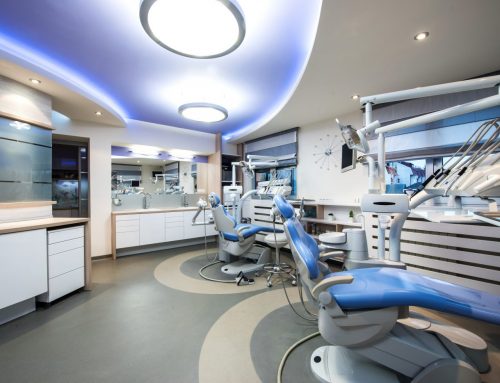There are many provisions in the dental office lease that should be carefully reviewed and negotiated to ensure they align with, and support your short and long term practice plans.
Whether you are a startup dentist opening your first practice, renewing your dental office lease, or expanding or relocating your office, there are two particularly important provisions in the lease that can dramatically impact the future of your dental practice: the Exclusivity and Use Clauses.
Exclusivity Protection in the Dental Office Lease
 Having a direct competitor in the same building as your practice will certainly impact the success of your business. Although there may be no current tenants in direct competition with you, you will want to protect your business from future changes in the building’s occupancy. An Exclusivity Clause is the best way to do so.
Having a direct competitor in the same building as your practice will certainly impact the success of your business. Although there may be no current tenants in direct competition with you, you will want to protect your business from future changes in the building’s occupancy. An Exclusivity Clause is the best way to do so.
Exclusivity language in the lease is typically written in the landlord’s favor, granting them the flexibility to move anyone into the building without restriction. When written properly, this clause can be extremely helpful in protecting your business by preventing the landlord from renting space within the building/center to other dental professionals.
Negotiating the Exclusivity Clause in the Dental Office Lease
As with any contract, everything is negotiable. When negotiating exclusivity language, it is important to be specific; by doing so, you will leave less room for interpretation and misunderstanding. For example, the Exclusivity Clause can be written to prevent your landlord from moving any other dental professionals into the building, such as those practicing general dentistry, orthodontics, endodontics, oral surgery, etc.
The Impact of the Use Clause in the Dental Office Lease
Use provisions in the lease outline the activities or services that you are permitted to perform in the space. The details of this clause are often overlooked at negotiation time, which can be extremely detrimental to your practice’s growth when the time comes to expand your service offering.
Optimizing Practice Growth with Use Language
The Use Clause should not limit your ability to adapt or grow your business. Restrictive wording such as “solely for general dentistry and no other use” is problematic if you want to add a specialization to your dental practice (ex. orthodontics or endodontics) down the line.
Flexible wording such as “for oral health and related activities” is effective because it captures current and future use for your dental practice, without being restrictive. This wording is broad, but not vague; it accurately captures current uses of the space while allowing room for growth.
If you are currently a solo practitioner but want to leave yourself the option to grow your dental practice down the line, ensure that the Use Clause in the lease allows you to bring in associates. Also, ensure that the “Use” provisions in the lease do not restrict you from offering additional services (ex. cosmetic services, dental spas, orthodontics).
Importance of Exclusivity and Use Clauses for New Dental Practices

For new startup dentists, there may be less clarity about the future plans of your business at the onset than a well-established practice. Therefore, it is even more critical for startups to negotiate the terms of the Exclusivity and Use Clauses in the lease agreement now to have the flexibility to expand and grow the business when needed.
To ensure you’re not limited from growth by your landlord and that you’re protected from competitors moving into your space, it’s encouraged to have these clauses, along with all the other risky terms in the lease, reviewed by professional dental office lease negotiators.



